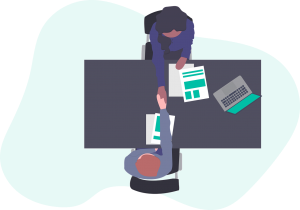Q: I did a job interview last week and one of the things that surprised me was the extent to which they cross-examined me after my answers. Every time I gave an answer, they had at least one follow up question – e.g., how I felt I did in the scenario, what I learned from it and what I would do differently next time. I found it quite off-putting. Is this standard? (RC, email).
A: It is becoming more common as awareness grows of modern job interview techniques. Interview panels like to go deep into a story to see what exactly lurks behind your initial offering. If you go to an interview hoping that you will not be cross-examined, you could be very surprised. Your opening punt on a topic may not be taken as read.
A rule of thumb is to avoid introducing stories or examples that you cannot flesh out if invited to do so. There is something of the iceberg about this: what you show above the surface should only be a small representation of what you actually know.
Ergo, prepare information for follow-up questions. The question ‘what would you do differently next time?’ is a very good example. Every time we do something, we learn from it. It is no shame to save that next time out you would start the process earlier, you would involve more people, or, indeed, you would bring fewer people into play, if that happened to be more appropriate.
What is the point of carrying out actions in your workplace if you don’t learn from them? We learn by doing, but only if we commit to learning.
The capacity to reflect on your actions will impress the panel.
Do your prep work
All of this comes back to doing your proper preparation beforehand. You know what they’re looking for – you have read the job spec; you have talked to somebody who works in the company; or you have extensive knowledge of the company because you already work there – so you should have stories prepared to match their needs.
When preparing your stories, scribble out a few potential follow-up questions that may be asked:
What did you learn?
What would you do differently?
How was it perceived by others?
What was the biggest challenge you faced?
Have you ever had to do something like this since then and did you put what you learned into practice?
As I’ve said here on many occasions, the modern way in interviews is to go a mile deep rather than a mile wide. Be ready to flesh out your stories so that they give the interview panel a clear insight into the value you will offer.
I am surprised by the number of people who rock up to a job interview without any preparation in the form of writing some notes and/or doing some actual practice, even if only when driving solo in the car. You’re leaving it to chance if you do that.
We have all seen the best man at the wedding who didn’t bother to write a speech, trusting that a couple of double brandies would stir his creative juices, only for the resultant output to have almost tragic consequences – and, if not quite tragic, certainly putting a temporary damper on proceedings.
Practice, practice, practice.
Featured image courtesy of Pixabay.
Need interview training? Go HERE for all types of interview
Need our help? Complete this form below and we will get back to you






